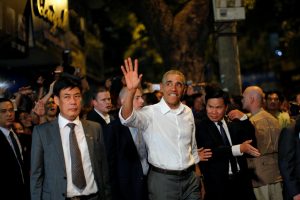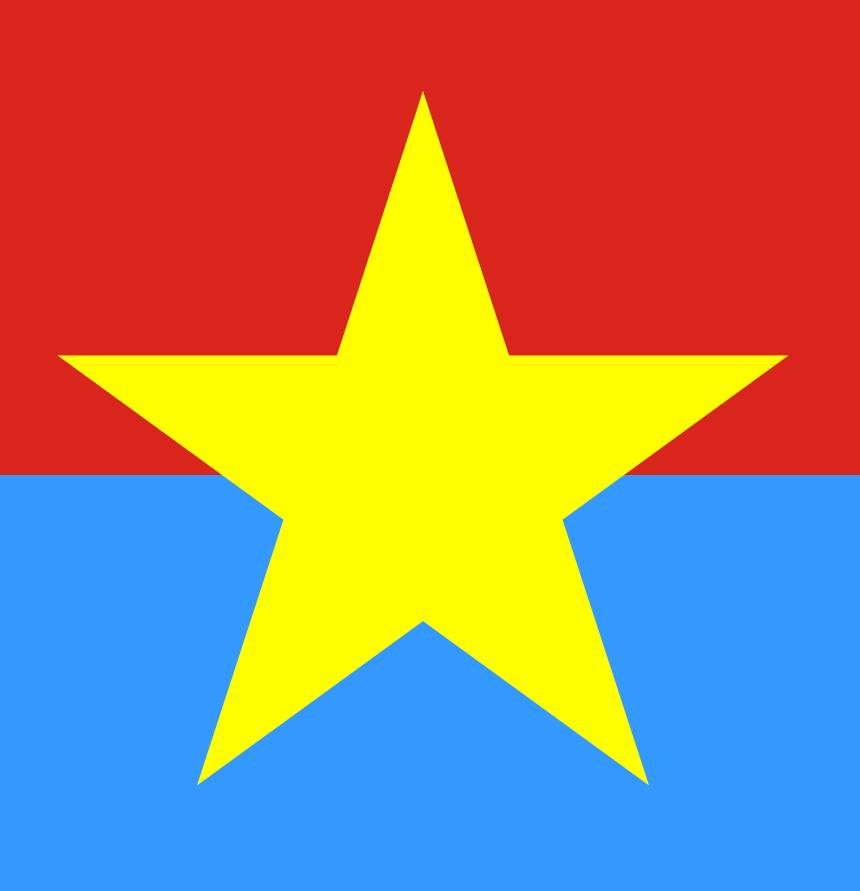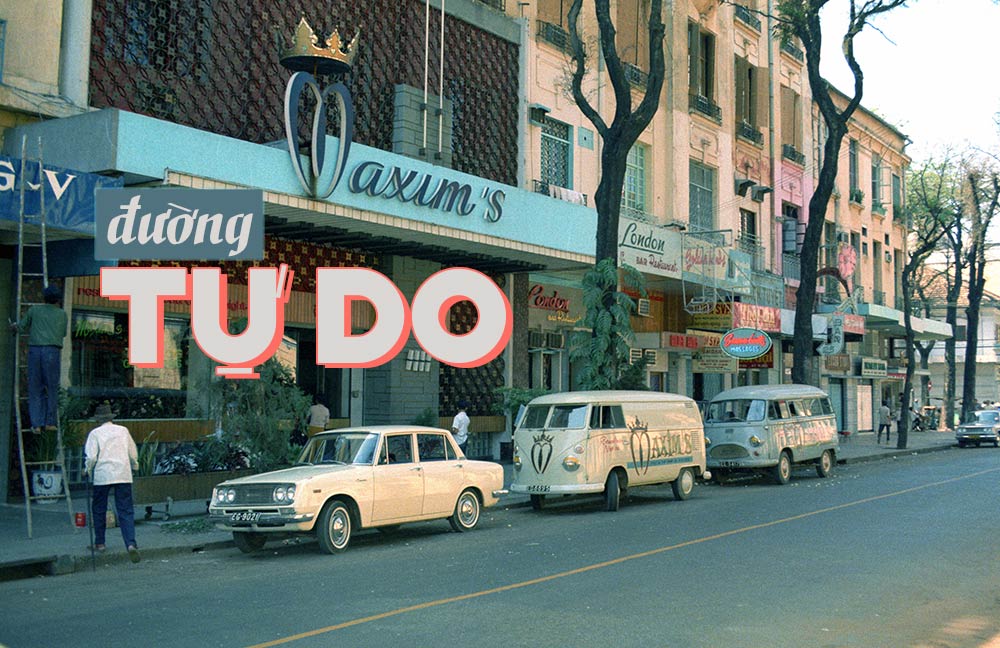
W.Minh Tuan
During our ancestors’ time, selecting people to become mandarins was mainly through examinations.
Everyone has the right to take the exam, and if they pass the exam, and are talented and virtuous, they will be appointed as a mandarin, regardless of whether that person is rich, poor, the son of a mandarin, or the son of a farmer, craftsman, and even regardless of age, whether you are a child, or an 80 year old person,,,.
Our ancestors’ way of choosing leaders in the past was extremely equal and very respectful of talent.
Nearly 1,000 years ago, in 1075, Vietnam for the first time opened an exam to select talented people to become mandarins. That was during the reign of King Ly Nhan Tong, when he opened the examination department for Doctorate, PhD.
The first Vietnamese person to pass the Doctorate, PhD exam was Mr. Le Van Thinh, born in 1038, died in 1096, at the age of 58, from Bac Ninh province, and was later promoted to the position of Minister of War, that is, Deputy Minister of National Affairs now, then promoted to the position of Grand Master, like the Prime Minister position now.
Since then, the Feudal Dynasties of our ancestors’ time continuously organized examinations to select talented people to be appointed as mandarins.
Regarding the number of exam courses, and the number of people passing in nearly 1,000 years in our country is as follows:
1- During the Ly Dynasty, the interval between exams was 1 exam every 12 years. Organized 6 exam courses, 27 people passed, there were 4 Doctorates.
2- During the Tran Dynasty, from 1239, during the reign of King Than Thai Tong, there was an exam every 7 years. There were 14 exam courses, 238 people passed, and there were 12 Doctorates.
3- During the Ho Dynasty, there were 2 exam courses, 200 people passed, and 1 winner ò Doctorate.
4- During the Early Le Dynasty, from the reign of King Le Thai Tong, in 1435, (this King later died of a cold, causing the unjust case of Le Chi Vien of Mr. Nguyen Trai) every 6 years. There were 28 exam courses, 485 people passed, and there were 20 Doctorates.
5- During the Mac Dynasty, there were 22 exam courses, 485 people passed, and 18 Doctorates.
6- In the Later Le Dynasty, from King Le Thanh Tong, in 1466, King Le Thanh Tong revised the rule to take 1 exam every 3 years. This exam pattern was maintained for 435 years, until 1919, when the French abolished Chinese style exams, replacing them with French education and the National Language.
There were 73 exam courses, 493 people passed, and 6 people won the exam Doctorates.
7- During the Nguyen Dynasty, there were 40 exam courses, 588 people passed. During the Nguyen Dynasty, Doctorates were not allowed to pass.
In total, over nearly 1,000 years of exams, our ancestors organized 185 exam courses, 2,875 people passed the exam, many people passed the exam twice, so the total number of people passing the exam was 2,096 times, of which 56 people passed the exam of Doctorate position.
So it can be said that passing the Doctorate exam is very difficult. Most of the people who pass the Doctorates exam are outstanding, intelligent, and more talented than others.
Famous Doctorate, Ban Nhan-Junior Doctorate, and Tham Hoa-third Doctorate in our country that most Vietnamese people know by name are:
1- Le Van Thinh (1038-1096), passed the first doctoral course in 1075), was promoted to the position of Grand Master, like today’s Prime Minister. Mr. Le Van Thinh had the greatest contribution in being an ambassador to China, negotiating skillfully, firmly and softly, thus claiming the land of Cao Bang for Vietnam, without having to fight.
But then he was falsely suspected by King Ly and his court of plotting to harm the King. The story of Mr. Le Van Thinh’s plot to harm the King Ly is as follows:
When King Ly was out on a boat on West Lake, Hanoi, a strong wind suddenly blew up, darkening the sky and earth. Then the King felt as if a tiger had appeared intending to harm him. But at that time, a fisherman in West Lake, named Muc Than, cast a net and caught the tiger. When the soldiers and Mr. Muc Than removed the net to pull out the tiger, it turned out to be Prime Minister Le Van Thinh. So the King and his officials suspected that Mr. Le Van Thinh intended to turn into a tiger to harm the King. But because King Ly felt sorry for Mr. Le Van Thinh, who had made many contributions to the country, he did not have the heart to behead him, but only exiled him far away to work as an official on the border area. At the end of his life, he was called to return to the court and rested in his old age in his hometown of Bac Ninh until his death.
Now on the edge of West Lake, Quang Ba area, there is a shrine to Mr. Muc Than, a fisherman, and when people visit Muc Than temple, they will hear the story of Mr. Le Van Thinh transforming into a tiger.
Obviously this is a myth, not true.
How could a human turn into a tiger?
There may be a strong wind suddenly rising in West Lake, which is an unusual change in nature, and maybe at that time it will be dark, because clouds will come. Then everyone panicked, and in that panic, Mr. Le Van Thinh wanted to protect the King, used his body to cover the King, but then because of the panic, the King and his soldiers thought Mr. Thinh intended to harm the King, and then gradually, people fabricated the story that Thinh turned into tiger intending to harm the King.
Recently, the family of Mr. Le Van Thinh’s descendants in Bac Ninh filed a petition asking the State to exonerate Prime Minister Le Van Thinh, resolving Mr. Le Van Thinh’s injustice of more than 1,000 years. But our Vietnamese State is probably also confused, not knowing what to do, because there has never been such a precedent, that the State today addresses injustice, or resolves some of the outstanding problems of the country that happened thousands of years ago in the Vietnam country’s history.
2- Nguyen Hien (1234 – year of death unknown, passed the exam at the age of 13, in 1247, passed the exam the same year as Mr. Le Van Huu, 17 years old, and Dang Ma La, 13 years old). Mr. Nguyen Hien was promoted to the position of Ministe.
3- Le Van Huu (1230-1322), passed the exam in 1247, when he was 17 years old. Be promoted to the position of Minister of Defense. But Mr. Le Van Huu is most famous for being the first editor of the history book Dai Viet Su Ky Toan Thu, completed in 1272, after that, Mr. Phan Phu Tien, Ngo Si Lien, etc. of the Le dynasty also wrote further additions.
4- Mac Dinh Chi (1280-1350), passed the exam in 1304, when he was 24 years old, became an official at the position of Ta Bac Xa Dai Lieu ban, like the position of Minister now.
5- Luong The Vinh (1441-1496), passed the exam in 1463, when he was 22 years old, during the reign of King Le Thanh Tong, worked as a mandarin to the position of Truc Academician, Minister of the Academy, similar to the position of Director of the Academy today. When he died, he was built a temple by the people and was honored by King Le Thanh Tong as the Supreme Happy God.
6- Ngo Si Lien (year of birth and death unknown) passed the PhD exam in 1442, (the year Mr. Nguyen Trai was unjustly beheaded) and became a mandarin with the position of Imperial History Officer, similar to the position of Director of the Institute of History today. Then the Ministry of Huu Thi Lang, similar to the position of Deputy Minister of Foreign Affairs today.
7- Nguyen Binh Khiem, (1491-1585), passed the exam in 1535, at the age of 44. He worked as a mandarin in the position of Ta Thi Lang of Bo Lai, as today’s Deputy Minister of the Interior, then of the Eastern Academicians, and was one of the Four Court Pillars of the Le Dynasty, with the position of Advisor to the King, a higher rank than the position of Minister-Secretary.
8- Le Qui Don, (1726-1784), passed the Dinh Nguyen exam (1 grade lower than the Doctorate) in 1743, when he was 23 years old. He worked as an official in the position of Minister of Industry and Trade, like the current Deputy Minister of Construction, Economy, Industry and Trade.
9- Nguyen Khuyen (1835-1909) passed the Hoang Giap exam in 1871. At the age of 36, he became an official of Quang Ngai province, like the Provincial Governor now. After that, he was bored with the school scene, asked to retire, wrote poetry,,,.
Some scholars today are only accustomed to speaking according to the leader’s opinions, often criticizing the ancient learning methods of our ancestors, saying that studying poetry, Chinese characters, studying Confucianism, Taoism, studying the Four Books and Five Classics is only training a class of mandarins to be servants to Kings, cannot match the content that today’s schools teach to leaders!!!
Of course, the learning content of our ancestors’ time was not perfect, but compared to the learning content in today’s political schools, which mainly taught about Marxism-Leninism, the ancient learning content of our ancestors improved much more today.
In ancient times, children 6 and 7 years old started learning Chinese characters, learning the Three Character Classics, Four Character Classics, and the Five Languages.
And most importantly, learn “first learn etiquette, then learn literature” – that is, learn etiquette, respect the elderly, parents, grandparents, learn how to greet, say hello politely,,,.
At the age of 10 or more, our children in the past began to study the Four Books, the Five Classics, Chinese History, and Vietnamese History from the Hong Bang period – the period of the Hung Kings. Then learn how to write essays, poems, couplets, essays on governing and preserving the country in Chinese characters,,,.
So at just over 10 years old, our children know how to master a foreign language, which is Chinese characters.
For more than 4,000 years, our Vietnamese society has had no class division, no distinction within the party or outside the party.
Those who study well, and are virtuous, and talented will be respected.
How come you are a party member and are promoted, while I, who am not a party member, will always be a subordinate?
In the history of nearly 1,000 years of examinations and education of our ancestors in ancient times, everyone could study, take the exam, and if they passed, they could become mandarins, without any strange distinctions based on class, family background, outside the party, within the party.
In fact, in human society, how can there be a division between one person being a bourgeois and another being a proletariat, those inside the party being good people, those outside the party being bad people?
Because today you are a proletarian, but tomorrow, if you are good at business, lucky, hard-working, and intelligent, you will become a wealthy person.
On the contrary, today you are rich and have property, but you are not good at business, not good at competing, become lazy, drunk, indulgent, and maybe even unlucky, then tomorrow you will become a proletarian.
Being proletarian or bourgeois all depends on your business talent, hard work, and luck, but there is no difference in class composition, class ideology, or status, or family background, about exploitation and non-exploitation,,,.
Look at the officials who have been arrested and prosecuted for corruption recently, all of them are party members, no one is from outside the party.
So why are we only appointing officials who are party members, but not those outside the party?
Are General Ly Thuong Kiet, General Tran Hung Dao, and General Pham Ngu Lao party members?
Are Mr. Nguyen Trai, Mr. Le Qui Don, Mr. Le Van Huu, and Mr. Ngo Si Lien party members?
Are Mr. Huynh Thuc Khang, Mr. Phan Boi Chau, and Mr. Phan Chu Trinh party members?
Is musician Van Cao, cultural writer Dao Duy Anh, Minister of Foreign Trade- laywer Phan Anh, Minister of Education Nguyen Van Huyen, first Hanoi President Dr. Tran Duy Hung a party member?
When President Ho Chi Minh was alive, he had the same way of using talent as our ancestors did in the past.
President Ho Chi Minh appointed Lawyer Phan Anh, not a party member, became Minister of National Defense in 1945, then Minister of Foreign Trade.
Mr. Ho also appointed Mr. Huynh Thuc Khang, a non-party member, as Vice President.
Uncle Ho also appointed Professor Nguyen Van Huyen, a non-party member, as Minister of Education.
But why do officials at all levels nowaday have to be party members?
According to the way of dividing classes and core members, outside the party and within the party, Uncle Ho Chi Minh is not a core member of the family, because Uncle Ho’s father, Mr. Nguyen Sinh Sac, passed the Pho Bang exam and was appointed to be district governors, not the proletariat as defined by Marxism and Leninism.
So let’s learn from our ancestors in the past, and follow the recent example of President Ho Chi Minh, appointing those who are talented, virtuous, and dedicated to the country to leadership positions in the country.
Only then will we be able to clean up corruption and bring the country quickly towards prosperity as Ho Chi Minh wished, and the wishes of all the Vietnamese people.///


Leave a Reply